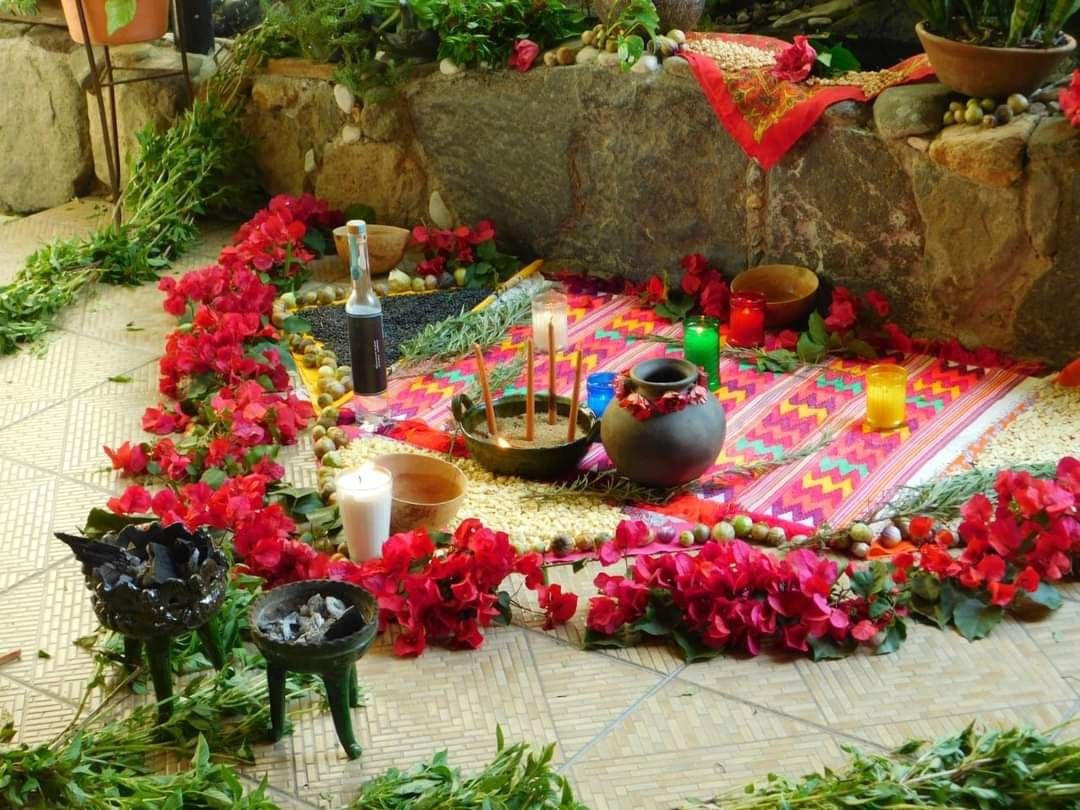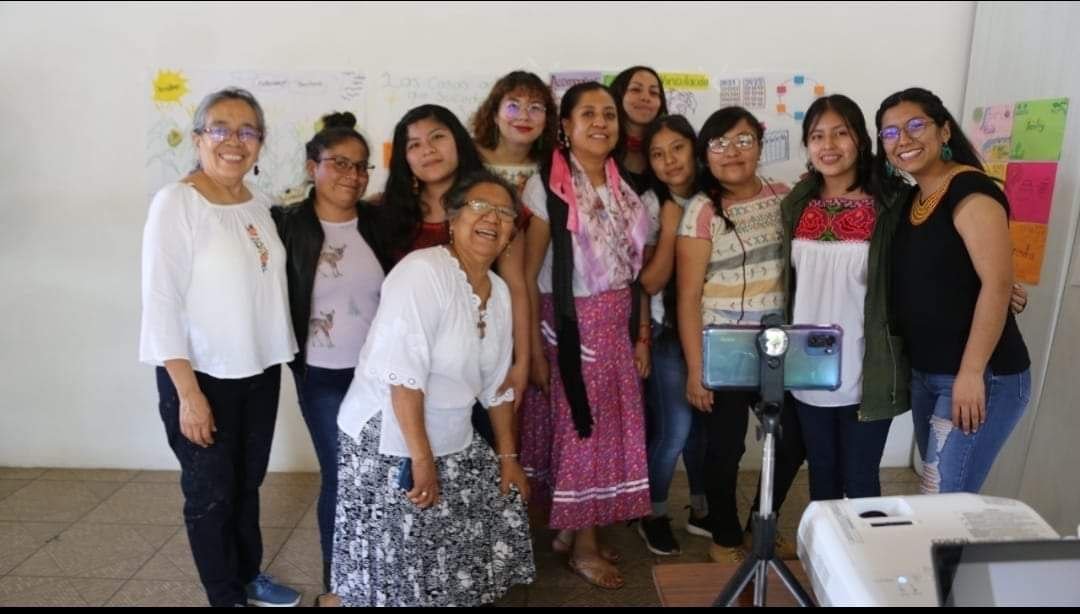“Mother Earth is sick from a model of infinite exploitation. If urgent action is not taken, more indigenous peoples and women will be displaced from their territories. Climate justice must imply justice for indigenous peoples. We are living alternatives to the climate crisis. We resist ecocidal and genocidal violence. What many have called development and growth has implied violence for our territories. What good is money to repair, finance or mitigate if we don’t stop the war against indigenous peoples and Mother Earth? We need those responsible to stop the extermination against our territories.”
The Mitzy Cortes speech at the 2022 Global Citizen Festival in New York was forceful and a true reflection of his struggle. The recent winner of the Global Citizen Award: Citizen Award Mexico She is part of the Seedbed of Women Defenders, a network that establishes ties and is strengthened through training for the care of the territories.
Global Citizen spoke with Mitzy to learn more about their work and how the processes for the defense of Mother Earth are formed.
Global Citizen: How was the idea of the Women Defenders Seedbed born?
Mitzy Cortes: We met as part of a training process initiated by the Flor y Canto AC Indigenous Rights Center for young women defenders belonging to indigenous communities. When this process concluded, we had the need to link up and organize ourselves, because despite the fact that we were from different indigenous territories in Mexico, we faced the same problems that came from patriarchal violence in different spaces, both for those of us who had already been participating in organizational spaces and for those who wanted to start getting involved. Some of this violence was related to the few leadership opportunities for young women caused by stereotypes based on gender or age.
We were also united by a deep interest in the defense and care of our territories, from logics of thought elaborated from our perspectives as women, but also as youth interested in strengthening community organization, without disassociating ourselves from the land and its processes; as well as to value and reflect on our identity and knowledge.
The organization began when we decided to exchange knowledge on water problems in different indigenous communities where we prioritize local knowledge and the worldviews of our peoples regarding water care. After this activity, we held listening circles around the problems that we locate in our territories but also about our experiences as young women in our attempt to influence these problems. Hence, it emerges as a priority to articulate ourselves as a hotbed that seeks to strengthen and train the youth that comprise it to provide tools that allow us to influence the problems of our territories, considering that our own bodies are a territory and where the intergenerational relationship and the The relationship between men and women must be carried out without reproducing violence.
Building the seedbed implied a space for listening and understanding that allowed us to re-dignify our work and recognize that our struggles are also the continuity of the struggles of many other women who preceded us and whom we continue to claim. The hotbed also became the space for articulation and organization that allows for continuity or triggering processes where violence is not reproduced, neither to the territory, nor to women, nor to youth. In the medium term, we intend to interculturally accompany more women who defend and care for their territories; taking into account our experiences and worldviews, to weave bonds of cooperation.
GC: What is the work you do on a daily basis with the Seedbed?
MC: We seek to strengthen and train the youth that make up the Seedbed of Women Defenders of Our Territories to provide tools that allow, in the near future, to interculturally accompany other women defenders who defend and care for their territories; taking into account the diverse experiences and worldviews, to weave bonds of cooperation.
As part of the internal listening of the people who make up the seedbed, we locate two specific needs: the first linked to access to legal, communication, organizational, and pedagogical tools that allow detonating processes of defense and care of the territory and, on the other, the need to listen to each other and position our experiences as important in the processes of struggle.
Our mission is to create a space that allows us to train and exchange tools for defending the territory from the knowledge and experiences of other peoples or of ourselves. That is, to generate a space for the creation of their own pedagogies where experience occupies a central place.
In the seedbed we proposed three transversal axes that guide our actions:
1.1 Caring for/Healing the Body (Self-care).
1.2 Women and the relationship with mother earth (spirituality/traditional knowledge/symbolic aspects of the territory).
1.3 Women and power relations in the management of common goods.

GC: How is the network made up?
MC: In our walk we adapt to the virtual space to weave networks between women who are from different territories and indigenous peoples: ñuu savi, Zapotecs, Nahuas and Mixes. Each one of us has a local impact on their territories, however, the articulation of the network has an impact on the central-southern region of Mexico: Puebla, Guerrero, Tlaxcala and Oaxaca. We are currently 13 young indigenous women.
GC: Can you give us some examples of training you have done in the areas of caring for the environment, and women’s empowerment, among others, please?
MC: In May 2021 we held the First Youth Forum for the Defense of the Blood of Mother Earth, where the objective was to learn about the experience of young women around the problem of water and contribute to the dissemination and awareness of this problem. Part of the defense of the territory is to remember that this defense goes from speaking our language, inhabiting our territories and recovering the stories of our peoples. For this reason, we carry out activities to remember our roots, such as publishing in our languages, as well as exercises to present our territories where we talk about our stories, who we are, where we come from, what our struggle is.
After these reflections we began to create an organizational space led by ourselves to learn more about our needs, our horizons, the way we would like to organize ourselves and our action strategies. In October 2021 we had our first face-to-face meeting where we decided to be a Seedbed where the seed allows us to identify that we are part of a larger process but where everything begins with a seed which must be cared for and cultivated. Periodically we have carried out a constant exchange on topics related to: environmental education, climate change and defense of the territory, dance, among others.
In our first year as a group, we have already generated alliances with other groups, participating in different virtual spaces such as: in the study circles “Sustainability Experiences” organized by the Autonomous Metropolitan University and currently with organizations such as Controla Tu Gobierno AC and the Digital Watermelon for some of our colleagues to obtain tools on women’s political participation, accountability, transparency and community communication.
Mexico: meet the group of women who work for the defense of the land

